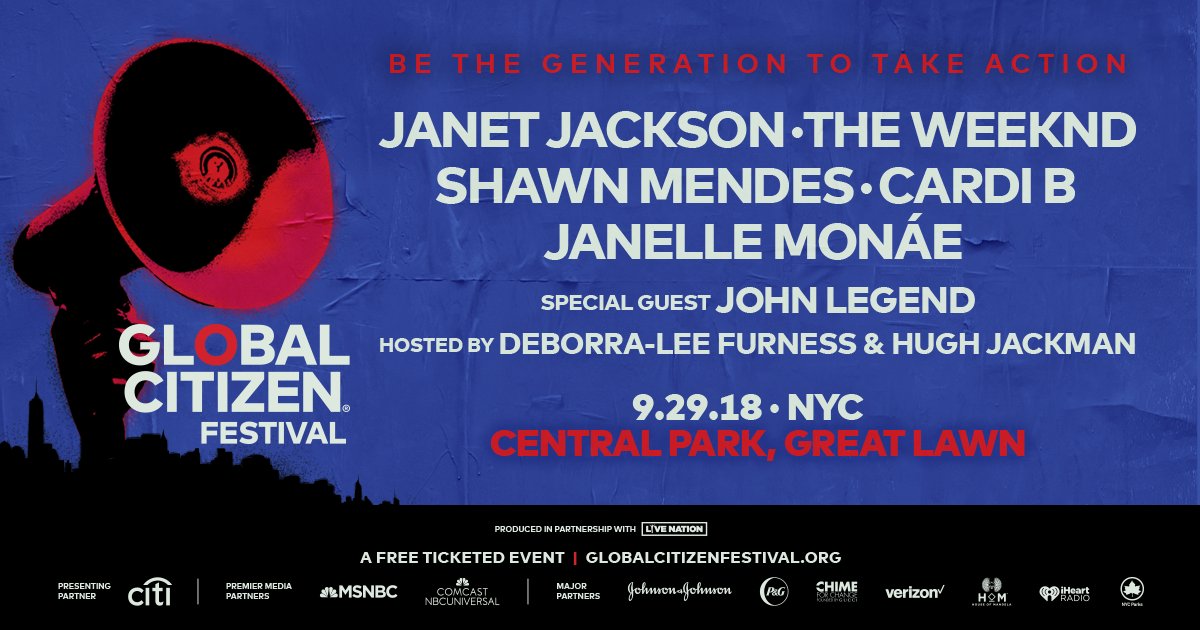Female athletes are paid and recognized far more today than they were just a few decades ago. And while that major progress made is certainly worth celebrating, soccer star Abby Wambach says it’s not enough.
“When people say, ‘Look how far we’ve come,’ I say, ‘Do you want to know how far down we were?’” Wambach said on a panel at the Global Citizen #SheIsEqual Summit on Friday.
Wambach recalled a time she heard her childhood idol — April Heinrichs, a player on the US women’s national soccer team — speak. Heinrichs was wearing a pair of Lanzera cleats, which she said she was paid $1,000 to wear.
At age 12, Wambach was impressed, but as she grew older and more successful in her sport, she woke up to the harsh realization that — in an era in which Michael Jordan was being paid millions to play basketball and earning millions more in endorsements — $1,000 was not a lot of money.
Take Action: Sign this petition to #LeveltheLaw and empower girls and women around the world!
“This isn’t just a female athlete’s story. This is every single woman’s story on planet Earth,” Wambach said at the panel, part of the summit presented by P&G and #SeeHer, an initiative to improve the accurate portrayal of women and girls in advertising and entertainment in the US.
“Women lose our very lives because of this pay gap inequity, and in order to get it back we have to fight,” she added.
Since retiring from the sport in 2015, Wambach has been vocal advocate for gender equality and closing the wage gap.
The athlete called on the sports, entertainment, and sportswear industries to address gender inequity, saying that the time and opportunity have never been better to start devoting the same kind of attention and funding that male athletes receive to female athletes.
But Wambach said the change that is needed goes beyond sports companies and sports coverage. It’s also about changing the narratives that young girls are told. It’s about encouraging them to be bold and brave, to persevere rather than give up — traits that many athletes will say are essential to success in sports.
Read More: Serena Williams Is Calling Out Sexism in Her Sport — and She's Not Alone
“We’re all told stories, fairytales when we’re growing up, but the fairytales little girls are told in a lot of ways are very different,” Wambach said, citing Little Red Riding Hood as an example. “Little Red Riding Hood is told to stay on the path, don’t be curious, don’t wander … As soon as she wanders, all hell breaks loose.”
Stories like these discourage young girls from exploring, challenging rules, and pushing boundaries, Wambach said. Instead, they encourage girls to adhere to stereotypes and prescripted roles.
“These are the stories we’re told, and storytelling is so important,” Wambach said.
The 2018 Global Citizen Festival in New York will be presented for the very first time by Citi. MSNBC and Comcast NBCUniversal will air a live simulcast of the Festival on MSNBC and MSNBC.com. The Festival will also be livestreamed on YouTube and Twitter, presented by Johnson & Johnson. Proud partners of the 2018 Global Citizen Festival include Global Citizen’s global health partner and major partner Johnson & Johnson, and major partners P&G, CHIME FOR CHANGE Founded by Gucci, Verizon, House of Mandela, iHeartMedia, and NYC Parks. Associate partners include Microsoft, Great Big Story, and One Championship.
